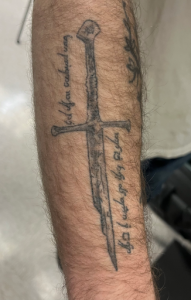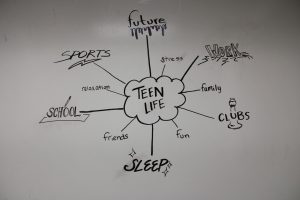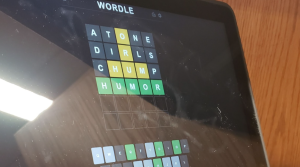Intelligence in Society
February 8, 2019
When you think of the smartest people in the world who comes to mind first? The painters and musicians and authors? Or is it rather the scientists and engineers and doctors? For most people the latter is the answer with little backing behind it.
If a student wasn’t in AP math and science classes and concentrated only on social studies, English, and elective credits focused in the arts they wouldn’t be considered smart by many people. That’s not to say their acting wouldn’t be something to talk about or that they wouldn’t be recognized by their teachers for their essays in class. They would, however, to the majority of people they wouldn’t be seen as a gifted student who could do whatever they wanted when they grew up. They would be average. If a student only took AP math and science classes though, they would be seen by their peers to be the top of their class even if their GPA didn’t reflect it.
Most believe that someone in the scientific fields is automatically smarter than those in a liberal arts career because they take classes that use numbers as if they are languages and if you haven’t understood the progression of math from elementary to high school you’d be completely lost trying to find the differential equation of a quadratic integral. English classes are easier for many to follow. A period ends a thought. A comma, well it allows a continuation of an idea. Simple rules that many can follow and the only real thing that trips people up in an English class is the difference between their, there, and they’re. But behind these rules of the English language hides the real brain work.
Mathematicians, scientists, and engineers all try to solve a problem through logic and numbers, but English majors, composers, and artists solve problems at a deeper level. They must understand the human race past the facts. Liberal arts majors have to see what makes people the way they are and find ways to communicate with the world through emotions and not just statistics.
Artists study art not to see the brush strokes or blending of colors but to feel the emotions that speak through an image. Speech writers don’t read to see how the composition of language works, but to find what speaks to a person’s soul. Those who sparked a revolution weren’t the ones who understood numbers and chemicals, they were the ones who understood human nature.
Dorothea Dix was a journalist who sparked a change in how we view mental health around the world. Bob Marley spoke to the world through language to spread peace. When you search for the top people who changed the world a list of 100 people in history comes up. The top 10 on the list are teachers, movement leaders, and writers. That isn’t to say those in math and science aren’t smart and don’t contribute to society. But they aren’t the only ones. We need engineers to help in innovations, but we need journalists and teachers to educate the next generation and bring together a divided world with something deeper than statistics.






